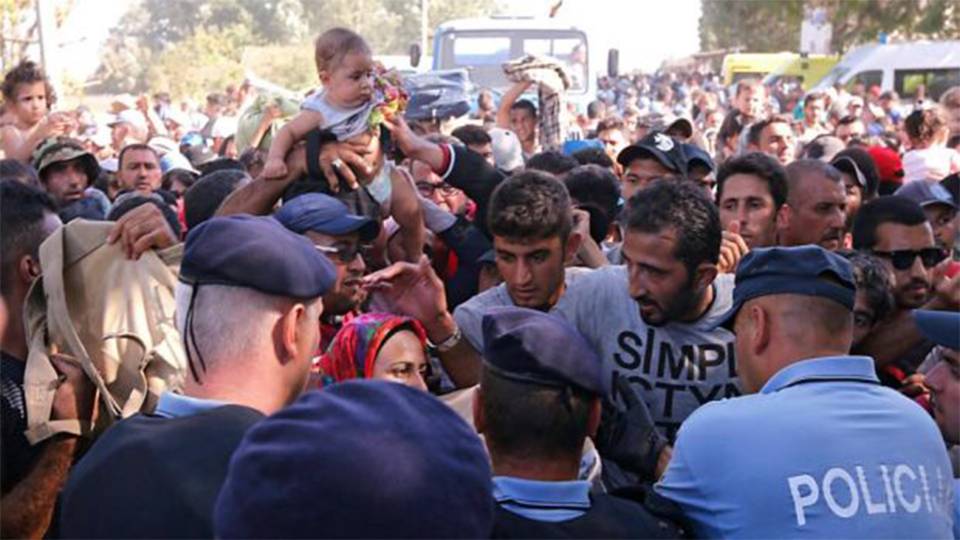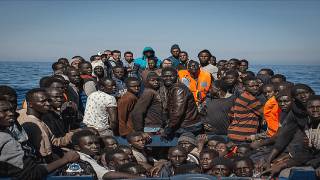Migrants Are Taking a New Route Through Bosnia
Borna, Defend Europa, 27 March 2018
A new Balkan route through Bosnia has opened up for migrants: from Greece to Albania, then on to Montenegro and Herzegovina.
This route, according to a western diplomatic source, matches the one taken by weapon and drug traffickers, which reveals that human smuggling networks have also been established.
Paying their way to Europe
One migrant, Ahmed Wessam, who spoke to AFP in Sarajevo, left the northeastern Syrian town of Hassake a month ago after paying people smugglers to get him to Europe.
“A thousand dollars (800 euros) to go from Turkey to Greece, a thousand euros to go from Greece to Albania and so on.” Another example that the people coming to Europe have a choice of where they can go and are not fleeing their country because of prosecution.
According to Bosnian authorities, since the beginning of the year, 700 migrants have entered the country illegally and almost 800 were intercepted at the border. Most of them were Syrians, Pakistanis, Libyans, and Afghanis.
Lack of accommodations and resources
The local authorities fear that the end of the cold weather could spell a big spike in numbers.
“We have no capacity to accept thousands of refugees… although they do not want to stay in Bosnia.” Prime Minister Denis Zvizdic said.
The Head of the medical charity Doctors Without Borders (MSF) in the Balkans, Stephane Moissaing, dismissed concerns of a repeat of the 2015 migrant crisis.
The Bosnian authorities, however, should “handle (the situation) in a humane way, so it does not become a real humanitarian crisis,” Moissaing said.
The country’s current reception capacities are limited to a centre for asylum-seekers near Sarajevo, with space for only 154 people.
The situation “gets complicated” Bosnian Security Minister, Dragan Mektic, admitted recently, stating that there were currently between 45,000 and 50,000 migrants between Greece and Bosnia, many of whom might try their luck by going through Bosnia.
The border with Croatia, an EU member state, is 1,000 kilometers (600 miles) long and Sarajevo only has 2,000 border police officers. There are fences and increased border security along the Serbian border because of the migrant crisis of 2015; if they try their luck along the Bosnian border, the same measures will be awaiting them there.
According to Nidzara Ahmetasevic, a volunteer working with migrants in Sarajevo, the number of migrants in the country “is at least double” what the official figures show. Because of an inadequate border patrol force and migrants who throw their documents away, the official figures cannot be taken at face value.
“We are in contact with more than 300 people. We have found a solution (in terms of accommodation) for some 50, but we could fill two more houses of that size.” she said.
Other attempts to cross
Initially intended to be a hostel in a Sarajevo suburb, the large building where Wessam and his relatives have been staying has individual rooms equipped with toilets; it was made available by a Bosnian who lives abroad. Samira Samadi, 35, another migrant staying there, left the central Iranian town of Ispahan in early 2017 together with her husband.
The couple have already tried to illegally enter Croatia, but the snow and forests put them off. Wessam will depart in “a week, maybe 10 days.”
“I do not know how to cross the border, but we will try and retry. We have already crossed many times.” he said.
This recent development shows that a vast number of the people coming to Europe are not motivated by war or the unbearable conditions in their own countries. It is the promise of a ‘high-life’ in Europe that draws them. Even the ones genuinely fleeing war are not refugees: when they are accepted in one Middle Eastern or Balkan state, but then choose to move to a richer European country because of various incentives, they become economic migrants.
Borna is a writer for Defend Europa






















